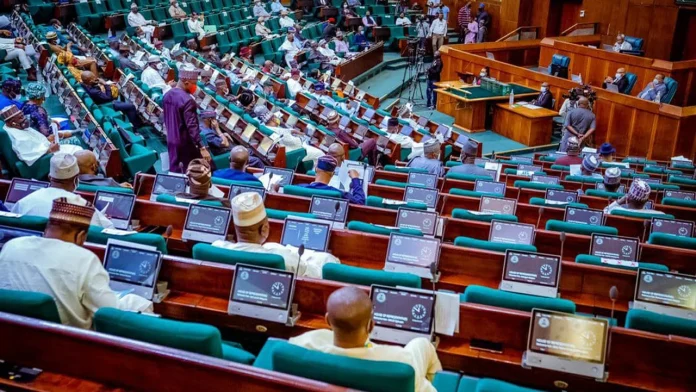By Paul Effiong, Abuja
House of Representatives is set to amend relevant sections of the Child Rights Act to ensure that adequate protection is accorded the girl-child across the country.
This was the resolution of the House, following a motion moved during plenary yesterday by Kafilat Ogbara.
Debating her motion, the lawmaker also called on the leadership of the National Assembly to provide the necessary legislative support in terms of budgetary approvals to ministries to ensure immediate domestication of the Child Rights Act across the country.
She also called on the leadership of the National Assembly to ensure the swift passage of Bills that seek to protect women and girls like the Gender and Equal Opportunities Bill, GEOB.
The House explained that “more than 1.1 billion girls are poised to take on the future, adding that everyday, girls are breaking boundaries and barriers; tackling issues posed by stereotypes and exclusion, including those directed at children with disabilities and those living in marginalised communities.”
The lawmakers also emphasised that the protection of the girl-child is crucial in sustaining the continuity of mankind as they grow into women and mothers who not only shape the future generation, but the trajectory of nations across the globe.
The House also informed that gender discrimination is a global phenomenon that has engulfed many nations due to patriarchy and cultural stereotypes, while other nations have made giant strides in closing the gender gap, Nigeria is still grappling with these issues, starting from access to education, healthcare and basic amenities.
It added that despite Nigeria being a signatory to the Convention of All Forms of Discrimination Against Women, CEDAW, Conventions on Child Rights and many others, harmful practices like Female Genital Mutilation, FGM, is still being practised in some parts of the country which is a direct violation of the rights of women and girls.
They expressed worry that the current data indicates that Nigeria has an estimated 10.5 million out-of-school children who are also users of hard drugs and the presence of such a vast number of uneducated youths not only jeopardises their future, but also poses a threat to the nation’s security and socio-economic stability.
Consequently, the House urged the Federal Ministry of Education to devise ways such as implementing mobile education units or community outreach programmes, to curb the number of out-of-school girls across the 36 states and the Federal Capital Territory, FCT.
The House thereafter mandated its Committees on Women Affairs and Social Development, Basic Education, and Services to engage the National Drug Law Enforcement Agency, NDLEA, Federal Ministry of Education, National Orientation Agency, NOA, among other stakeholders to organise workshops and create awareness campaign against all harmful practices against the girl-child in Nigeria.





